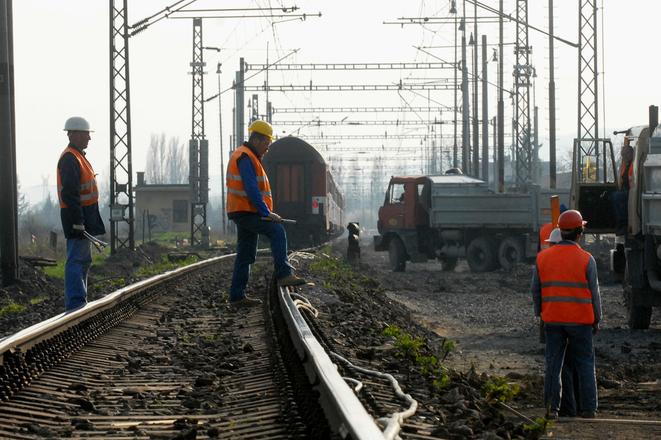The European Union will allocate up to €1 billion from its funds for Slovak railway projects through to 2020. As a result, there should be quicker trains, parking lots and more transfer points for public transport, the Hospodárske Noviny daily reported on March 14.
The money will be used for 21 crucial projects. The government promised in its programme statement that it will launch the modernisation of 250 kilometres of rails.
One of the subsidised projects will concern the track between Devínska Nová Vec and the Czech borders. The state-run railway company ŽSR has already launched the competition, with deadlines for submitting bids expiring in the following weeks. It concerns the modernisation of 30 kilometres of rails in order to allow trains to travel at 200 kilometres per hour, Hospodárske Noviny wrote.
Former head of ŽSR Pavel Kravec is mindful of the fact that the railway needs to allow speeds of 200 km/h as the Czechs are also modernising their own tracks to allow for this speed.
The experts addressed by the daily do not expect any serious problems accompanying the project.
“The track is nearly straight so it is not necessary to change its location,” said Martin Fundárek from the non-governmental initiative, Better Transport, as quoted by Hospodárske Noviny. The only problematic point may be a border bridge which only allows a speed of 80 km/h, he added.
ŽSR also plans to use the EU funds for the most expensive project in its history that will be constructed by the consortium of firms led by Doprastav for €365 million. It concerns the modernisation of the track between Púchov and Považská Teplá (both in the Trenčín Region) to allow speeds of 160 km/h.
“The completion of the modernisation of this railway section will finalise the modernisation of the whole track between Bratislava and Žilina and will allow the trains to travel at 160 km/h,” ŽSR informed, as quoted by Hospodárske Noviny.
The state plans to complete the modernisation of the section between Považská Teplá and Žilina costing €127 million this year. Brussels will repay 85 percent of both projects, the daily wrote.
ŽSR also plans to modernise the track under the Tatras, which is part of the more extensive modernisation of the railway between Žilina and Košice. The construction works on the Poprad-Lučivná section, which is about 10 kilometres long, should cost about €100 million.
The EU money is also expected to be used for smaller projects, including the construction of integrated transport terminals. There should be seven of them in Bratislava, according to Hospodárske Noviny. Another terminal is planned for Trebišov (Košice Region).



 Illustrative stock photo (source: TASR)
Illustrative stock photo (source: TASR)